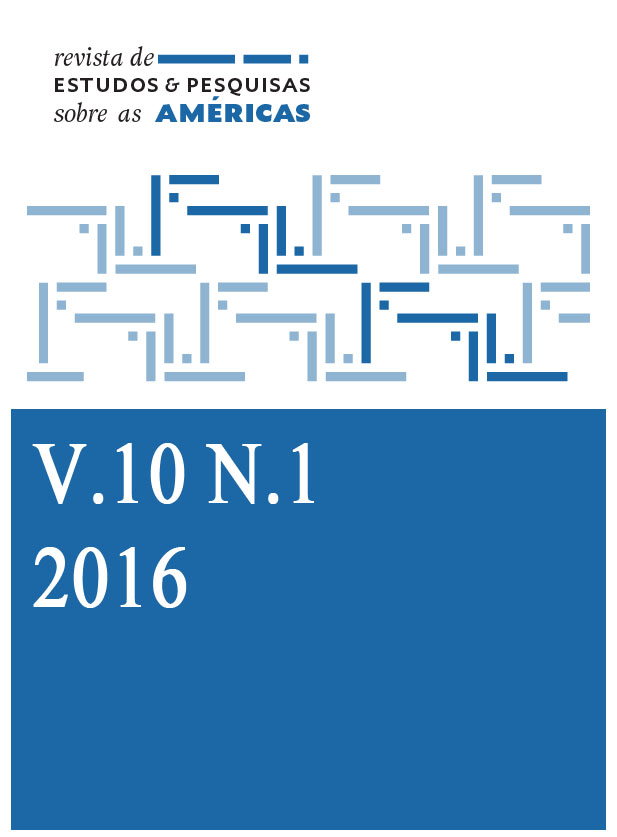“El Derecho a Conocer” Experiencias de Personas que Buscan SUS Orígenes en la Justicia Argentina
Abstract
Resumo:
Na Argentina o activismo da Abuelas de Plaza de Mayo, na busca de seus netos apropriados durante a última ditadura militar, teve um efeito inesperado: centenas de pessoas [que não poderiam ser seus netos] começou a se perguntar sobre a sua identidade. Alguns deles se organizaram em associações enquanto outras começaram a ser chamados de "afetado independente", mas a luta para encontrar suas origens e criar condições adequadas para esta legislação era em conjunto. Para esses ativistas o acesso à justiça se revelou como muito difícil e, na verdade, apenas algumas pessoas foram capazes de levar seus casos ao tribunal.
Neste artigo vou descrever e analisar o caso de dois processos. Sabrina -ativista "afetado independente" - e o caso de três mulheres que, em 2012, conseguiram convencer a parteira que as vendeu ao nascer. Analisar como essas mulheres experimentam a procura pelo direito de saber as suas origens na arena judicial, permitirá compreender, em primeiro lugar, como as exigências de quem procura as suas origens no campo judicial estão definidas e, por outro lado, o alcance e limitações do sistema de justiça para essas reivindicações ao "direito de saber".
Palavras-chave: Pesquisa. Origens . Demanda. Justiça. Direito.
 ***
Resumen:
En Argentina el activismo de Abuelas de Plaza de Mayo, en la búsqueda de sus nietos apropiados durante la última dictadura militar, ha tenido un efecto inesperado, cientos de personas [que no podían ser sus nietos] comenzaron a preguntarse sobre su identidad. Algunas de ellas se organizaron en asociaciones y otras se autodenominan “afectados independientes”, pero conjuntamente luchan para encontrar sus orígenes y crear legislaciones adecuadas para ello. Para estos activistas acceder a la justicia se revela muy difícil, en efecto solo algunas personas lograron llevar sus casos a la justicia.
En este artículo describo y analizo dos casos judicializados, el de Sabrina -una activista “afectada independiente”- y el caso de tres mujeres que, en 2012, lograron condenar a la partera que las vendió al nacer. Analizar cómo experimentan estas mujeres su demanda por el derecho a conocer sus orígenes en la arena judicial, permitirá comprender, por un lado, cómo se configuran las demandas de quienes buscan conocer sus orígenes en el terreno judicial, y por otro, los alcances y las limitaciones del sistema de justicia para este tipo de demandas por el “derecho a conocer”.
Palabras claves: Búsqueda de orígenes. Demanda. Justicia. Derecho.
 ***
Abstract:
In Argentina, the activism of Abuelas de Plaza de Mayo, searching for their grandchildren, kidnaped during the last military dictatorship, it has had an unexpected effect: hundreds of people [who could not be their grandchildren] began to wonder about their identity. Some of them became organized in associations while others call themselves "independent affected people" but they all gather together to find their own origins and improve current legislation. For these activists access to justice is revealed very difficult, indeed only a few people were able to take their cases to court.
In this article I describe and analyze two prosecuted cases, Sabrina ”“an "independent” activist - and the case of three women who, in 2012, managed to convict the midwife who sold them at birth. In order to analyze how these women experience their claims for the right to know its origins in the judicial arena, will allow to understand, first, how the demands of those seeking their origins in the judicial field are set, and secondly, the scope and justice system limitations for such claims to the "right to know".
Keywords : Search. origins. Demand. Justice. Law.
Downloads
Downloads
Published
How to Cite
Issue
Section
License
The published material is the property of the Journal, and may be reproduced in whole or in part with indication of the source.
Copyright: Authors will be responsible for obtaining the copyright of the material used. Authors who publish in this journal agree to the following terms:
a)Authors retain the copyright and grant the journal the right of first publication, with the work simultaneously licensed under
the Creative Commons Attribution License which allows the sharing of work with acknowledgment of authorship and initial publication in this journal.
b) Authors are authorized to take additional contracts separately, for non-exclusive distribution of the version of the work published in this journal (eg, publish in institutional repository or as a book chapter), with acknowledgment of authorship and initial publication in this journal.
c) Authors are allowed and encouraged to publish and distribute their work online (eg in institutional repositories or on their personal page) at any point before or during the editorial process, as this can generate productive changes as well as increase the impact and the citation of the published work (See The Effect of Free Access).
















